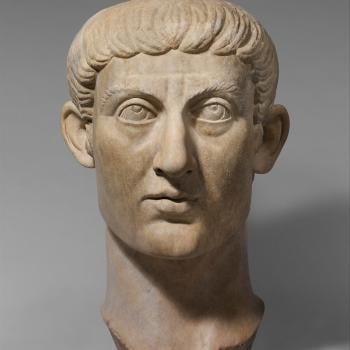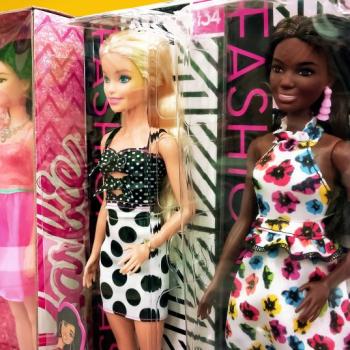
In Genesis 21:19, Hagar, the Egyptian woman enslaved by Abraham and Sarah, realizes that God sees, hears, and cares for her. Used, abused, and cast out by her enslavers, Hagar has been wandering alone in the desert, distraught because their water has run out. Overwhelmed by despair, Hagar sits some yards away from her infant, unable to watch him die.
As the mother of one beloved son, I can imagine no agony more acute than the helplessness of a mother unable to protect and provide for her child. Having survived ten years of single motherhood, a wilderness situation for anyone, I can identify with what must have been incapacitating terror for Hagar.
I remember fear stabbing through my shoulders, chest, and stomach with each new economic difficulty. We never went hungry. At times, we had just enough, with nothing extra. One day, seeing too much whitespace in our refrigerator, my son asked, “Mom, could we please get A LOT of food to put in the fridge?” Maternal instinct struck hard. My child wanted more food. Being free, employed, and blessed with family, I could always assemble the resources to meet each new need. Those initial stabs of fear–a terror of being unable to provide–dulled to background noise. The memory of that fear helps me imagine Hagar’s despair—a despair that threatens millions of mothers today, whose social positions, economic scenarios, and traumatic histories can prevent them from securing the resources necessary to quiet the panic gripping their guts.
Hagar’s story offers hope, though, for positive outcomes awaiting mothers and children in wilderness situations. Twice, God’s angel promises Hagar that God will “make a great nation” from Ishmael’s descendants. The first time Hagar finds herself alone in the wilderness, she is pregnant, fleeing her enslaver’s brutality. An “angel of the Lord” appears, promising “fruitfulness,” which is Bible-speak for prosperity and security. The angel sends Hagar temporarily back to Abraham’s household after asking Hagar a critical question: “Where have you come from and where are you going?” The angel tells Hagar to name her son Ishmael, which means “God hears.”
After this encounter, Hagar begins referring to God as “the God who sees me.” The second time Hagar finds herself alone in the wilderness, she comes to despair, whereupon she “lifts up her voice and weeps.” Again, God’s angel answers. “Do not be afraid,” the angel says, “God has heard the voice of the boy crying.” This is where the miracle occurs: “God opened her eyes and she saw a well of water. She went, and filled a skin with water, and gave the boy a drink.” The story goes on to say that “God was with the boy as he grew up in the wilderness.” Ishmael becomes a “skillful archer” who settles in the wilderness, marries an Egyptian woman and, as narrated in Genesis 25:12, lives a long, abundant life, becoming father to “twelve sons” who found “twelve tribes.”
Despite the story’s emphasis on a certain belligerence in Ishmael and his descendants, this is the Bible’s way of saying that God richly blessed Ishmael, who really thrived despite his precarious beginning, and who began a long line of fierce, strong people who resisted domination and built a civilization. Muslims claim descendance through Ishmael.
It’s a striking story—one of only two scenes throughout the Jewish scriptures in which God speaks directly to a woman, and the only scene in which a woman on her own encounters God, who appears as that potent symbol-image, water in the desert. Ishmael’s thriving–indicated by his twelve sons and their parallel nation–illustrates God’s readiness to raise socially outcast persons to positions of prominence and abundance. The story’s singularity underscores a powerful biblical idea: God sees and cares about the suffering of the enslaved and formerly enslaved, sees and cares about members of subjugated ethnic groups, sees and cares about people whose social systems have cast them out, designated them “other,” mischaracterized them as “less than.” God listens to Hagar, and acts to relieve her suffering. When Hagar and Ishmael lift up their voices, God listens. As someone who uses the Bible as a source of moral direction, I hear a call to action in this story: to listen and respond when someone from an abused racial, ethnic, or social group lifts up their voice.
I also hear clearly the idea that God cares for single mothers and their vulnerable children.













